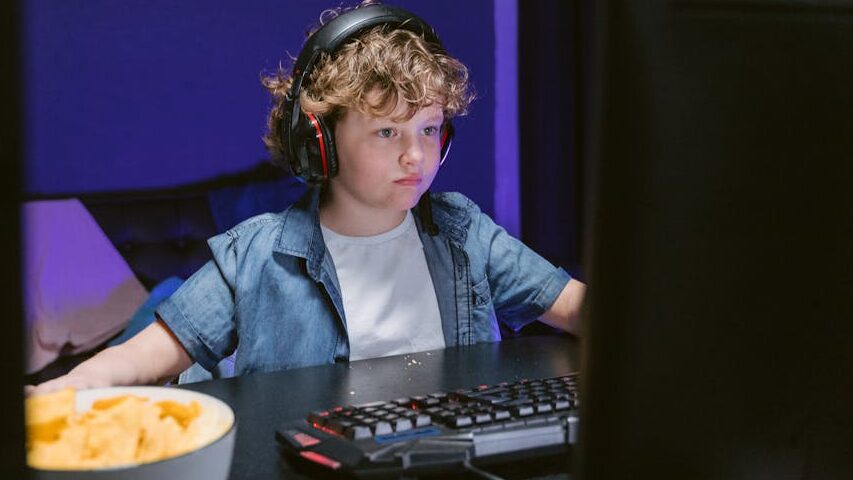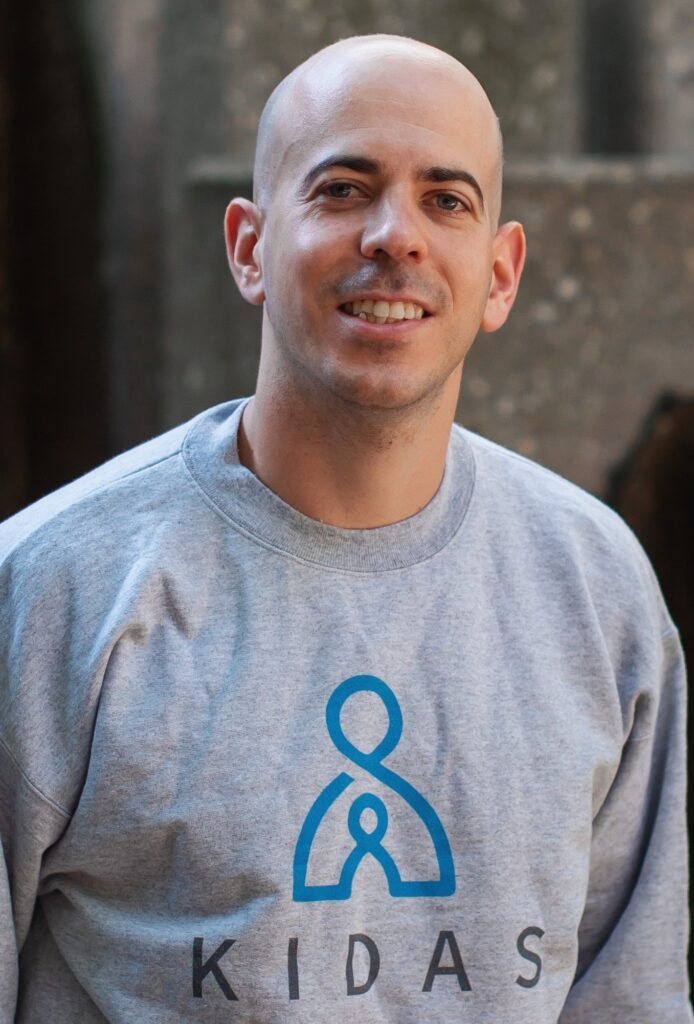While American parents in the 1980s were famously asked if they knew where their children were playing outside the home, modern parents could just as easily be asked if they know who their children are gaming with inside the home.
US-based startup Kidas has teamed up with Israel-based Overwolf, one of the biggest developers of software for video game extensions, to alert parents to toxic behavior towards their children when communicating with others in-game.
Many online games let users connect with and play against people from all over the world, without limits, including unrestricted voice and text chat. But not everyone who communicates with children in-game is there to have an enjoyable experience.
“Most people who play games suffer from a kind of harassment or bullying,” says Ron Kerbs, the Israeli founder and CEO of Kidas, who himself experienced harassment while game playing as a child.
“It can be a very toxic environment,” he tells NoCamels.
In fact, a recent report by the Anti-Defamation League found that 75 percent of young people between 10 and 17 years had experienced harassment while playing online multiplayer games in 2023, up from 67 percent the previous year.

Kerbs says he had the idea for the safety software after reading about a young girl who was sexually assaulted by someone she met online, and was shocked that this threat still had not been dealt with.
“I thought that it had already been solved,” he tells NoCamels. “When I saw that it hadn’t, I realized that there was the technology to solve it and wanted to provide it to parents to help them.”
Kidas, which is based in Philadelphia, teamed up with Overwolf to create software that parents can download onto a personal computer (PC) in order to scan spoken and written communications during hundreds of different games.
The software trawls through all of the communication conducted while gaming and alerts the parent should there be any signs of any kind of nefarious behavior, including grooming, verbal abuse and threats or financial scams. Only the parents are alerted, Kerbs says, except in locations such as Florida, where they are legally required to report certain incidents to law enforcement agencies.
Launching automatically as soon as the player enters a game, the software looks for 62 types of threats, he says, covering everything from online harassment to extortion, bullying and hate speech.

But in order to protect the privacy of the player, he says, it does not monitor apps such as Zoom or Google Meet, keeping strictly to communications in-game, which is considered public space.
Most of the process is automated, based on AI machine learning, with some low level of human involvement for quality control.
Kerbs praises Tel Aviv-based Overwolf for its “amazing” tools that he says made the entire endeavor possible.
“We are using their technology to connect to the games and we’re using our own technology to detect the cases of bullying, harassment and scams in those games,” he explains.
The Overwolf technology allows the software to differentiate between the kind of rough discourse expected while playing first-person shooter games, for example, which will almost inevitably include a certain amount of violent language, and actual threats or abuse personally directed at an individual.
Sign up for our free weekly newsletter
Subscribe“Unless you have the context as part of the game, which Overwolf provides, we would not be able to understand if someone told you, ‘I’m going to shoot you’ because you’re playing a shooting game and you’re shooting at each other or because it’s actually a real threat,” Kerbs says.
Overwolf Chief Marketing Officer Shahar Sorek says the Tel Aviv company was also determined to tackle this dangerous phenomenon.
“As the industry is growing and growing, so too are the issues and the problems and the challenges that come with it,” Sorek tells NoCamels.
“Anything that has to do with safety is dear to our hearts, so we cooperated with Ron in making sure that we can launch a product that can help children and parents be safe online,” he says.
While the software is largely restricted sending alerts to parents, Kidas has looked for assistance from psychologists and psychiatrists at the Children’s Hospital of Philadelphia, which Kerbs explains has one of the biggest anti-bullying and online harassment research departments in the US.
These specialists have created a bank of recommendations for responses to various scenarios, which Kidas shares with both parents and child gamers – should the situation demand it.
Kerbs says that in all, Kidas is protecting about 2.5 million conversations every month, offering protection to some 400,000 gamers.

Funding for the venture came from the Israel-United States Binational Industrial Research and Development (BIRD) Foundation, created in 1977 to foster collaboration between industries in the two countries.
BIRD normally focuses on sectors such as cleantech or medtech, but was impressed by the mission of the Kidas-Overwolf partnership, the foundation’s New Jersey-based Director of Business Andrea Yonah tells NoCamels.
Social impact is one of the aspects that the BIRD board looks for when deciding where to invest, Yonah says, and in this aspect the venture really made a positive impression.
“In this particular case, what they’re doing specific to gaming – keeping children safe from all of the dangerous activity that Ron identified – was really unique and was something that convinced the board that this was definitely a project that should be supported,” she says.
For now, the software is designed solely for PCs and cannot be used with any of the gaming consoles. And while Kidas does have proof of concept for one of the major consoles, it decided to focus on personal computers, which Kerbs says is a “huge market” for gamers.
The company is also focused for now on English-speaking countries, primarily North America, where it is available from Walmart’s online store as well as being included in bundles from a number of telecom providers. A free trial can also be downloaded from the Kidas website.
The software is not designed to prevent kids from playing online games, Kerbs says, but instead aims to make the environment safer and less toxic.
“We’re very pro-gaming,” he says. “Gaming has a lot of benefits socially and emotionally. We don’t think gaming is bad.”
Related posts

Rehabilitation Nation: Israeli Innovation On Road To Healing

Israeli High-Tech Sector 'Still Good' Despite Year Of War





Facebook comments